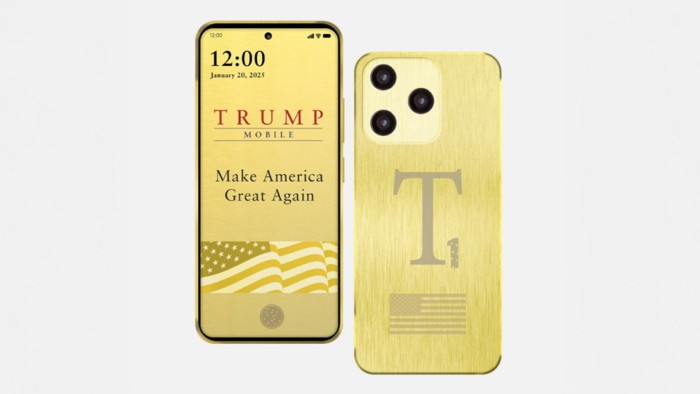Unlock the Editor’s Digest for free
Roula Khalaf, Editor of the FT, selects her favourite stories in this weekly newsletter.
President Donald Trump is nothing if not disruptive. Could he now be about to upset the US mobile phone market too? News that the Trump Organization will offer a $47.45 mobile phone deal, piggybacking on the networks of the three major US carriers, highlights the possibility that profit in the lucrative US mobile phone market could eventually follow Europe’s down the tubes.
Mobile virtual network operators, of the kind that the Trump Organization is launching, are at least in part responsible for the dismal state of Europe’s mobile market. In the UK, for instance, the likes of Sky, Tesco and Lebara lease capacity from network builders such as Vodafone, and then proceed to chase market share.
MVNOs, as they are known, account for 19 per cent of the UK market, thinks Enders Analysis. On current trends they could surpass a quarter by 2028, according to Assembly Research. In the US, meanwhile, their share is below 10 per cent. That helps explain why average revenue per user in Europe is perhaps $20 a month, according to research provider MoffetNathanson, compared with some $50 in the US. With the Trumps and their golden smartphone gatecrashing the market, could MVNOs take off across the pond, too?
It is possible. Traditional mobile carriers have strong brands, their own stores, and tie in users through combined network and handset deals. But as handsets last longer and refurbished kit gets more popular, customers are increasingly looking beyond traditional carriers, helped by online price comparison. In the UK, the proportion of handsets sold without a contract has risen about 50 per cent since the pandemic, according to Enders Analysis.
A one-to-one read across from Europe, however, exaggerates the threat to US phone carriers. Regulators in countries such as the UK seek vibrant competition, and have ensured mergers like Vodafone’s union with Three contain provisions that help smaller rivals. Economically, too, barely-profitable network operators have a strong incentive to pocket revenue from selling wholesale capacity, even if it involves handing foxes the key to the hen house. If they do not, their similarly straitened rivals will.

In the US, virtual mobile operators lack both those tailwinds. The regulatory environment is less complex, and established carriers do not need to mortgage their future in quite the same way. Cable companies such as Comcast, which have struck long-term capacity deals and can lower costs by routing traffic through their local WiFi infrastructure, are the main competitive threat.
For all that, the Trump Organization’s offering is likely to be popular — not least because it caters to the president’s supporters. While the terms that it has struck with network operators have not been disclosed, it is not priced at the lowest end of the market. Rather, its flagship $47.45 deal nods to his tenure as the US’s 45th and 47th president. In terms of leveraging the brand, few competitors can hope to compete.
